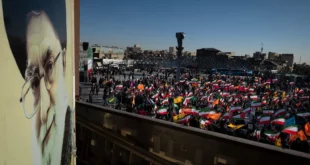Bosnian Presidency member Zeljko Komsic says his new party will be up and running next year, advocating new solutions and the equality of all Bosnians and Herzegovinians.Zeljko Komsic, the Croat member of Bosnia and Herzegovina’s tripartite State Presidency, says he is working on the formation of his new party after leaving the ruling Social Democrats in summer.
He told a news agency that a wider bloc of parties, which would offer an alternative to citizens, would come up with unique political answers to all problems in the country.
“I will participate in forming this state-level front that respects the constitution and legal system and the right of every citizen to be equal in the whole country,” Komsic said.
Komsic spoke of the current situation in Bosnia, saying that behind all the political games were party-political fights to gain control of public companies, the energy sector, tenders and projects.
Komsic also criticised the recent political agreement of his former party, the SDP, and the Alliance of Independent Social Democrats, led by Milorad Dodik, as a bad solution.
He also said that the currently cold relations between Zagreb and Belgrade could affect Sarajevo, as every time in history the two were either too close or too far away, effects were felt in Sarajevo.
Komsic was elected to the State Presidency as a member of SDP but disagreements with the party’s policies led him to leave and form his own party, banking on his high popularity ratings.
He especially opposed SDP-backed planned constitutional changes, which say that State Presidency members should not be chosen directly in elections in future, but chosen by parliament.
The proposed changes follow a 2009 European Court of Human Rights ruling in the Sejdic and Finci case.
The ruling said that Bosnia had to change its constitution and allow ethnic minorities run for top governing posts that are currently reserved for the three largest ethnic groups, Bosniaks, [Muslims] Serbs and Croats.
Komsic said the planned change would only create new forms of discrimination, as the ethnic-based parties in parliament were unlikely to choose presidency members from among the country’s minorities.
 Eurasia Press & News
Eurasia Press & News



